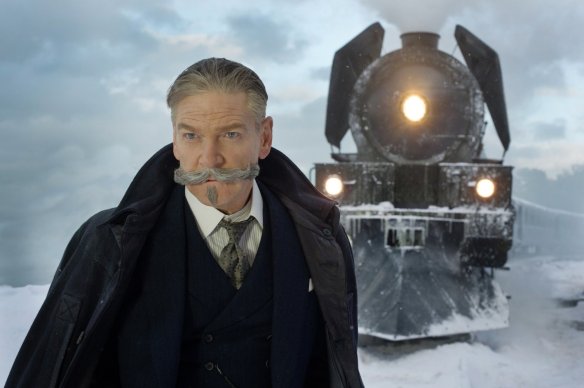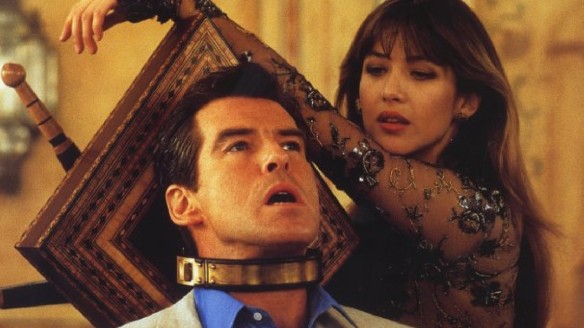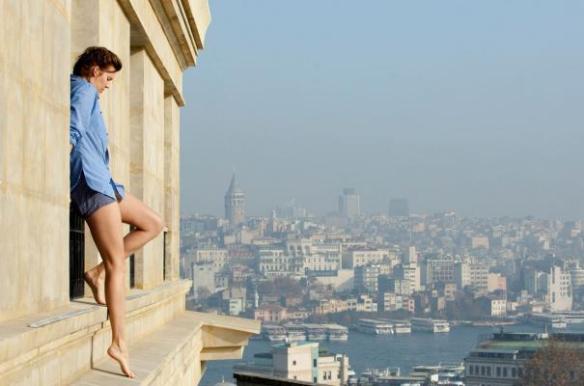(2020) Documentary (Magnolia) Zeytin, Nazar, Kartal, Jamil, Ali, Hajil, Little Ali, Baran, Hakim, Kenan. Directed by Elizabeth Lo
We humans treat our dogs with attitudes that can only be called schizophrenic. On the one hand, we are nuts about our pups; we buy them sweaters to wear in the winter (despite the fact they come factory-equipped with a fur coat), and write endless reams of praise for their loyalty, their friendship, their love. We also use their name as an insult; you’re a “dirty dog” or “treat someone like a dog.” But mostly, we regard the creature as man’s best friend.
Istanbul has a vast number of stray dogs running about. That’s mainly because a fair number of those following the Islamic faith believe that dogs are ritually unpure; certain writings forbid the practice of keeping a dog in the house; some believe that the mere site of a dog during prayer can negate the supplications of the person doing the praying. The Quran also instructs, on the other hand, that all creatures be respected and be treated with dignity – including dogs.
Hong Kong-born filmmaker Elizabeth Lo spent two years in Istanbul following around a trio of strays, with Zeytin – the first one we meet – the one she spent the most time with. Zeytin is a beautiful animal with one of the most expressive canine faces you’re ever likely to see. She has a playful disposition and although she does get in a kerfuffle with another stray during the course of the film, mostly she seems to want to play with other dogs and the humans she meets on the streets of Istanbul.
There are also two other dogs that Lo spends time with; Nazar, the companion of Zeytin, and Kartal, a puppy that joins the group later in the film. That’s because she is dognapped by one of the teen Syrian refugees that Zeytin spends a lot of time hanging out with. Much of the film is spent drawing parallels between the dogs and the refugees who have, ironically, fewer protections under the law than the stray dogs do.
Lo tends to give us a dog’s-eye view of the human culture, setting the camera low at eye level of the various hounds she follows. She also at one point straps a GoPro to Zeytin which proves to be a terrible idea; the loping dog gait bounces and jerks the camera around like there’s an earthquake going on. Even on a laptop the effect is so dizziness-inducing that I had to step away from watching the movie for several minutes while my vertigo subsided and my equilibrium was restored.
There isn’t much dialogue here. We catch snatches of conversations with passersby, as well as from the varied street kids that the dogs are with. There are moments that are moving – the kids receive meals from a state service, feeding the dogs from those meals first. There are also moments that are amusing as the dogs can be plenty playful and as I said, Zeytin has a wonderful range of expressions on her face, from smugness to incredulity to joy to sorrow.
I have to admit that I was terrified watching Zeytin ambling along the streets and highways of the city. Traffic is often whizzing by and I had nightmare visions of the dog dashing into the street and getting pulverized by a truck. Thankfully, nothing like that happens here.
Being something of a dog nut myself, I found spending time with these canines to be most rewarding. Lo obviously has an affinity for dogs; she peppers the film with title cards with quotes regarding the nobility of dogs by ancient philosophers, mostly from Diogenes – the same guy who went looking for an honest man while carrying a lamp, according to legend. Diogenes clearly preferred dogs to humans and I can hardly blame him.
Your attitude towards the film will largely depend on your attitude towards dogs. If you love dogs, you’ll find the film rewarding. If you are ambivalent towards dogs, you likely will find the film more enlightening about the attitudes towards refugees. If you’re not fond of dogs, best you find something else to watch. The movie, though, is entertaining and heartwarming enough that it’s worth seeing by the entire family, although you will rarely find a movie in which dogs take a dump as much as they do in this one.
REASONS TO SEE: Zeytin has the most amazing expressive face. Makes some fascinating parallels between stray dogs and homeless teens.
REASONS TO AVOID: There’s a nausea-inducing sequence when a GoPro is strapped to Zeytin’s back.
FAMILY VALUES: Suitable for all audiences.
TRIVIAL PURSUIT: In 1909 the city of Istanbul made a concerted effort to annihilate the stray dog population, but public outcry forced the government to enact laws preventing the euthanasia or holding of strays.
BEYOND THE THEATERS: Amazon, AppleTV, DirecTV, Fandango Now, Google Play, Redbox, Showcase Now, Vudu, YouTube
CRITICAL MASS: As of 3/8/21: Rotten Tomatoes: 941% positive reviews. Metacritic: 84/100.
COMPARISON SHOPPING: Los Reyes
FINAL RATING: 7.5/10
NEXT: Latin Noir











